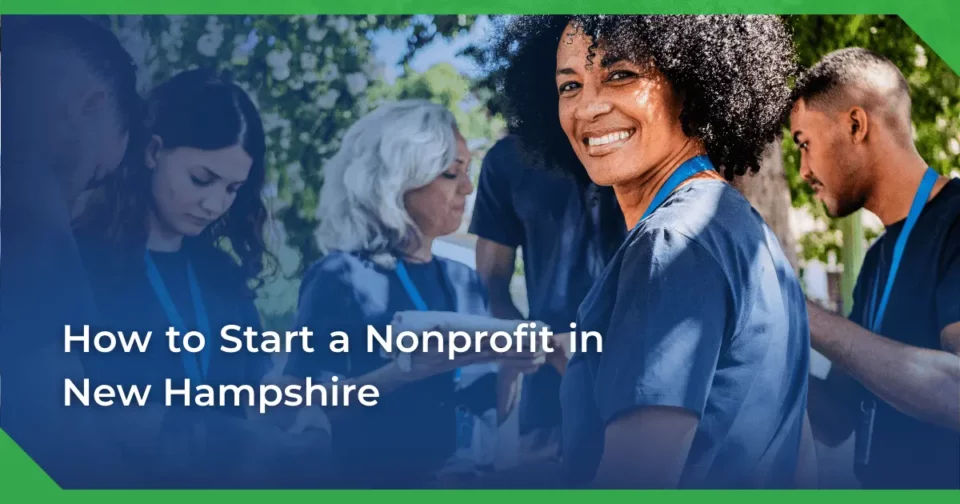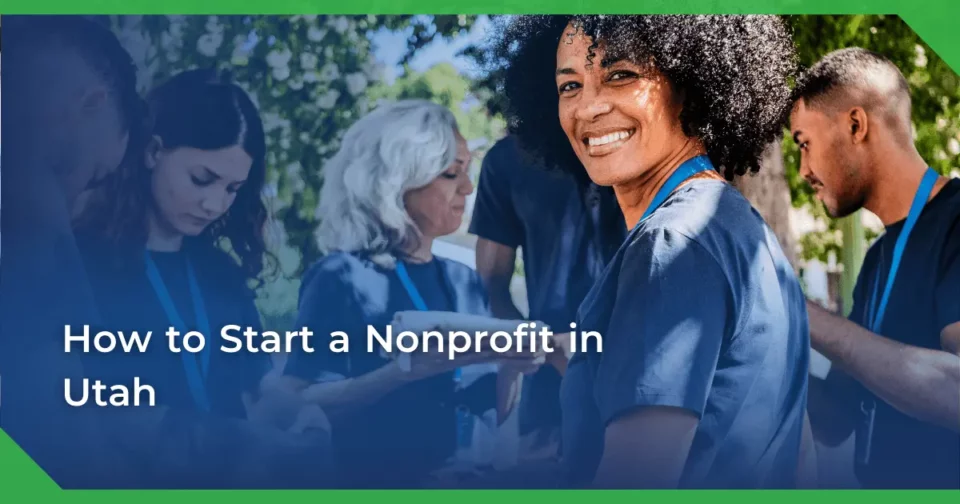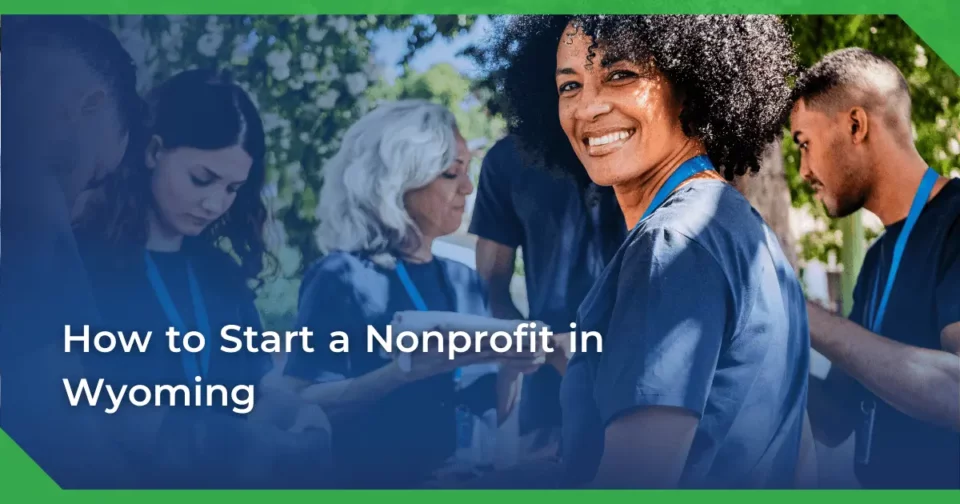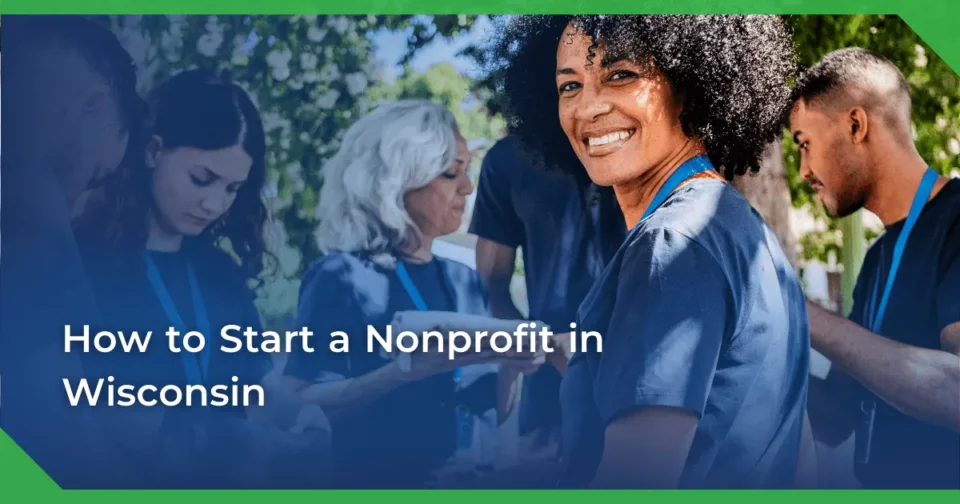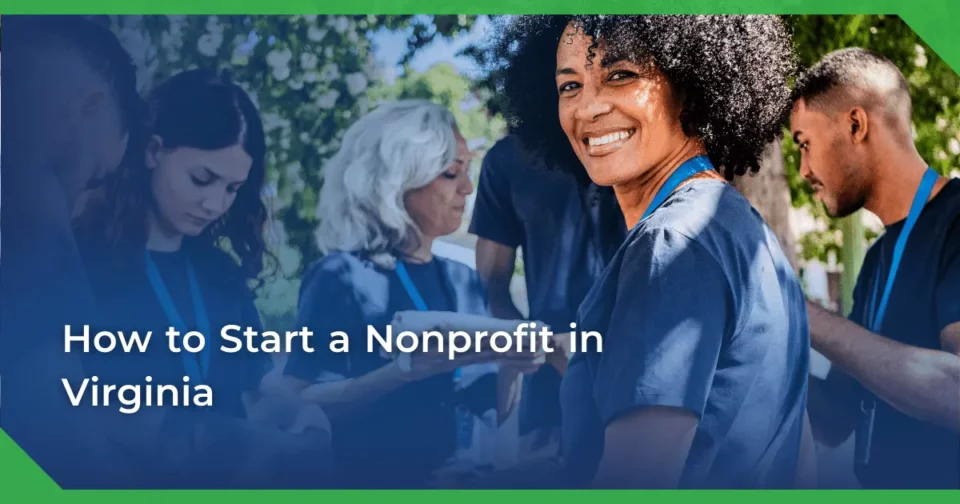
How to Start a Nonprofit in California: A Step-by-Step Guide That Actually Works
August 26, 2025
How to Start a Nonprofit in Connecticut: A Simple Step-by-Step Guide
August 26, 2025How to Start a Nonprofit in Colorado: Step-by-Step Guide for First-Time Founders
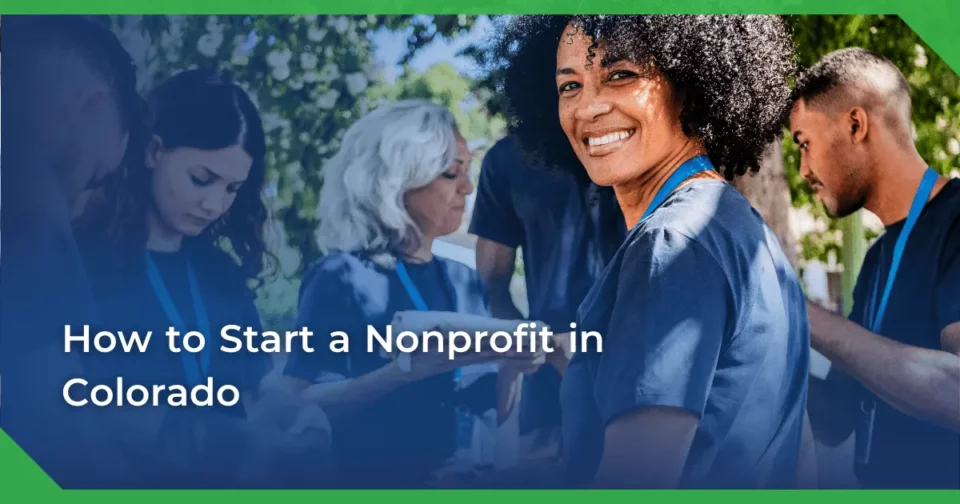
Whether you dream of fighting hunger, supporting education, or protecting the environment, starting a nonprofit in Colorado can turn your vision into reality. However, the journey from idea to operational nonprofit requires careful planning, legal compliance, and dedicated leadership.
In fact, successful nonprofits don’t just happen by chance – they’re built through systematic steps and proper guidance. That’s why experienced nonprofit compliance specialists recommend following a structured approach when establishing your organization. With over 35 years of experience and a 100% money-back guarantee on 501(c)(3) approvals, professional support can make the complex process manageable.
This comprehensive guide will walk you through every step of starting a nonprofit in Colorado – from testing your readiness and planning your foundation to completing legal requirements and securing tax-exempt status. Let’s transform your mission into a thriving nonprofit organization!
Check If You’re Ready to Start a Nonprofit
Before diving into the legal paperwork of starting a nonprofit in Colorado, take time to evaluate your readiness for this significant commitment. According to nonprofit experts, less than half of nonprofit startups survive beyond five years. Additionally, among those that do survive, approximately one-third face financial difficulties.
Key questions to ask yourself
First, examine if there’s a genuine need for your nonprofit. Research existing organizations to avoid duplicating services already available in your community. Consider these essential questions:
- Does your mission address an unmet need that benefits the public?
- Have you gathered evidence demonstrating the need for your proposed services?
- Will your target community actively seek and accept the benefits you plan to offer?
- Have you explored partnerships with existing organizations instead of starting new?
Furthermore, assess your financial preparedness. Starting a nonprofit requires careful consideration of both initial and ongoing costs. The incorporation fee in Colorado is $50 to file the Articles of Incorporation with the Colorado Secretary of State website (303-894-2200). Obtaining 501(c)(3) status from the IRS costs $275 for Form 1023-EZ and $600 for the full Form 1023.
Required skills and experience
To successfully launch and manage a nonprofit, you need specific skills and expertise. Nonprofit compliance specialists with 15+ years of experience recommend gaining hands-on experience through:
- Volunteering with similar organizations to understand their structure and operations
- Developing fundraising capabilities since nonprofit leaders spend significant time on fundraising activities, as detailed in IRS Form 1023 instructions
- Building skills in financial management, governance, and program development
- Understanding legal compliance requirements and reporting obligations
Time and resource commitments
Starting a nonprofit demands substantial time investment. Most small nonprofit organizations are operated by one to three individuals who handle the majority of the work, according to IRS Form 1023 instructions. Consider these time-intensive responsibilities:
- Managing day-to-day operations
- Coordinating with board members
- Handling legal paperwork and compliance requirements
- Organizing fundraising events and writing grant applications
- Developing and maintaining donor relationships
- Creating and implementing programs
Additionally, you’ll need resources for essential startup requirements such as office space, software tools for member/donor management, accounting systems, and marketing materials. As your organization grows, anticipate additional expenses for staff salaries, insurance coverage, and professional services.
Before proceeding, ensure you have:
- A dedicated team willing to commit long-term
- Sufficient startup funding
- Clear understanding of your target community’s needs
- Realistic expectations about the time and effort required
- Strong passion for your cause to sustain through challenges
Remember, while passion drives nonprofit success, practical preparedness ensures sustainability. Take time to honestly evaluate your readiness across these areas before moving forward with your nonprofit journey.
Plan Your Nonprofit’s Foundation
After evaluating your readiness, establishing a solid foundation becomes crucial for your Colorado nonprofit’s success. A well-planned foundation ensures your organization stays focused on its core purpose and operates efficiently.
Define your mission and goals
Your nonprofit’s mission statement serves as the cornerstone of your organization. A powerful mission statement should be concise, operational, and clearly state your organization’s purpose. Consider these elements:
- A clear definition of your fundamental purpose
- The specific needs your organization addresses
- The target community you aim to serve
Your mission statement also helps attract donors, volunteers, and community support. Therefore, ensure it remains visible across all communications and guides every organizational decision.
Research similar organizations
Thorough research of existing nonprofits helps validate your concept and identify potential partnerships. Use these resources to conduct your analysis:
- GuideStar: Access data on 1.8 million IRS-recognized tax-exempt organizations
- Charity Navigator: Evaluate financial health and transparency of established charities
- National Center for Charitable Statistics: Review nonprofit tax return data and sector trends
Understanding your nonprofit ecosystem helps prevent service duplication and identifies collaboration opportunities. This research phase is particularly important since each state has specific compliance requirements that vary significantly.
Create a basic budget
You’ve outlined community needs and drafted a mission statement. Now what? Let’s tackle the financial planning that moves you forward. Focus your nonprofit formation budget on these essential startup costs:
First, calculate your filing fees and timelines:
- Colorado Articles of Incorporation: $50 (processed within 2-3 business days)
- IRS Form 1023-EZ: $275 (typically 2-4 weeks for approval)
- IRS Form 1023: $600 (typically 3-6 months for approval)
- Colorado state tax exemption application: varies by tax type
Next, estimate your time investment for each formation step:
- Preparing Articles of Incorporation: 2-4 hours
- Completing IRS exemption application: 10-20 hours for Form 1023-EZ, 40+ hours for Form 1023
- Setting up initial governance documents: 5-10 hours
Remember that professional services can handle these filings while you focus on program development. Once your nonprofit is operational, you’ll need to budget for ongoing compliance costs including annual reports, Form 990 filing, and charitable solicitation renewals.
Complete the Legal Requirements
Now that you’ve laid the groundwork for your nonprofit, it’s time to navigate through Colorado’s legal requirements. These steps establish your organization’s legal identity and set the stage for future operations. While this process can seem complex, professional services can handle all the documentation and filings, ensuring compliance from the start.
Choose your nonprofit name
Selecting an appropriate name marks your first official step. Under Colorado law, your nonprofit’s name must be distinguishable from other registered entities. We recommend searching the Colorado Secretary of State’s database to verify availability, and you may reserve a name for up to 120 days by filing online and paying a $25 fee. You are not required to include corporate endings, but they are permitted.
File Articles of Incorporation
Filing Articles of Incorporation officially establishes your nonprofit corporation in Colorado. This critical step creates your legal entity – without it, you cannot apply for tax-exempt status. The process requires submitting specific information through the Secretary of State’s online portal. The filing fee is $50.
Your Articles of Incorporation must include:
- Organization name and principal office address
- Registered agent’s name and street address
- Name and address of incorporator
- Statement about voting membership (if applicable)
- IRS-required purpose clause for 501(c)(3) qualification
- IRS-required dissolution clause specifying asset distribution
The purpose and dissolution clauses are absolutely essential – the IRS will reject your tax exemption application without this specific language. Your purpose clause must limit activities to those permitted under section 501(c)(3), and your dissolution clause must ensure assets go only to other tax-exempt organizations upon dissolution. Professional formation services ensure this language is properly included, avoiding costly amendments later.
Get your EIN number
After incorporating your nonprofit, you must obtain an Employer Identification Number (EIN) from the IRS before opening bank accounts or applying for tax exemption. Apply for your EIN by filing Form SS-4 directly with the IRS. The online application is the fastest method and is free. You’ll need this number for all federal tax filings, employee hiring, and banking relationships.
Through careful attention to these legal requirements, especially the correct IRS language in the Articles of Incorporation, proper name selection steps, and EIN registration, you establish a solid legal foundation for your Colorado nonprofit. While navigating these compliance steps may seem complex, professional guidance ensures you meet all state and federal requirements from the start. With experienced specialists managing your filings and providing a secure portal to track progress, you can focus on your mission while experts handle the technical details.
Set Up Your Nonprofit Team
Building a strong nonprofit team stands as a cornerstone of your organization’s success. A purpose-driven team advances your mission through collective expertise and shared commitment.
Find board members
Colorado law requires at least one director and one incorporator for nonprofit formation. However, we recommend establishing a board of at least three directors to meet IRS standards for independence and demonstrate proper governance. Board members guide strategic direction, oversee fundraising efforts, and maintain accountability.
Define key roles
Beyond board positions, your nonprofit needs specific leadership roles to operate effectively. Essential positions include:
Executive Director/CEO
- Implementing strategic vision
- Managing daily operations
- Overseeing staff development
- Building community relationships
Chief Financial Officer
- Budget development
- Risk management
- Financial compliance
- Resource allocation
Development Director
- Creating fundraising strategies
- Managing donor relationships
- Overseeing grant applications
- Coordinating fundraising events
For smaller organizations, one person might initially handle multiple responsibilities. Board roles are typically unpaid volunteers, while staff positions may be compensated according to organizational capacity.
To maintain team effectiveness, implement these practices:
- Conduct thorough orientations for new board members
- Provide ongoing training opportunities
- Foster open communication channels
- Create clear accountability structures
- Recognize individual contributions
Through strategic team building and thoughtful role definition, your nonprofit develops the organizational capacity needed to fulfill its mission effectively. Each team member, from board directors to staff positions, contributes unique skills toward your shared goals.
Apply for Tax Exemption
Securing tax-exempt status marks a pivotal milestone in establishing your Colorado nonprofit. Remember, forming your nonprofit corporation doesn’t automatically make it tax-exempt – you must apply separately to the IRS. File either Form 1023-EZ ($275 fee) or the standard Form 1023 ($600 fee) for recognition as a 501(c)(3) organization.
Your Articles of Incorporation must already include the IRS-required purpose and dissolution clauses – without these, your application will be rejected. This is where professional expertise proves invaluable – experienced specialists ensure your application includes all required elements and responds properly to IRS questions. With a 100% IRS approval guarantee, professional services eliminate the uncertainty of the tax exemption process.
Processing times vary: Form 1023-EZ typically takes 2-4 weeks, while Form 1023 can take 3-6 months or longer. Once approved, your determination letter confirms that donations to your organization are tax-deductible – a crucial benefit that formation alone doesn’t provide.
After receiving federal exemption, apply for Colorado state tax exemptions. Colorado requires separate applications for sales tax and income tax exemptions – federal 501(c)(3) status doesn’t automatically grant state exemptions. Additionally, if you plan to solicit donations, you’ll need to register separately with the Colorado Secretary of State for charitable solicitation.
Maintain careful records of all IRS correspondence and file annual Form 990 returns as required. Professional services typically provide secure client portals where you can track your application status in real-time and store all important documents for future reference.
Conclusion
Starting a nonprofit in Colorado requires careful planning, dedication, and attention to detail. Most importantly, your success depends on thorough preparation across all key areas – from assessing readiness and building strong foundations to completing legal requirements and securing tax-exempt status.
A well-structured approach helps navigate complex requirements while maintaining focus on your mission. We recommend taking time to build each component properly rather than rushing through the process. With fully managed services that include 1-on-1 guidance, state-specific expertise, and guaranteed IRS approval, you can proceed with confidence.
Your nonprofit journey starts with honest self-assessment and extends through careful planning, legal compliance, team building, and tax exemption. Additionally, maintaining detailed documentation throughout the formation process proves essential for future operations and compliance.
Remember that establishing a successful nonprofit requires both passion and practicality. Therefore, balance your mission-driven enthusiasm with sound business practices and proper legal foundations. Expert guidance can help ensure your organization starts strong and creates lasting positive impact in Colorado communities. With over 35 years of experience helping nonprofits achieve compliance, trusted partners like Labyrinth, Inc. can handle your nonprofit’s formations, registrations, and renewals through their secure SOC 2 Type II certified portal, so you can focus on your mission.
Above all, stay focused on your mission while methodically working through each establishment phase. Your careful attention to these foundational steps will help create a sustainable organization ready to serve your community effectively.
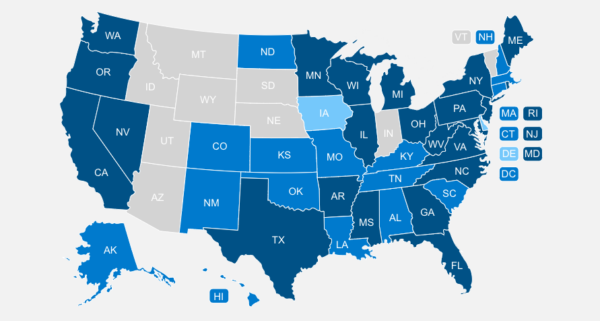

![Your 501(c)(3) Approval Guaranteed{{ include_custom_fonts({"Museo Sans":["Bold","Bold Italic","Regular","Regular Italic"]}) }}](https://no-cache.hubspot.com/cta/default/560178/interactive-194101957210.png)
![Start Your Nonprofit with Confidence{{ include_custom_fonts({"Museo Sans":["Bold","Bold Italic","Regular","Regular Italic"]}) }}](https://no-cache.hubspot.com/cta/default/560178/interactive-194101957151.png)


